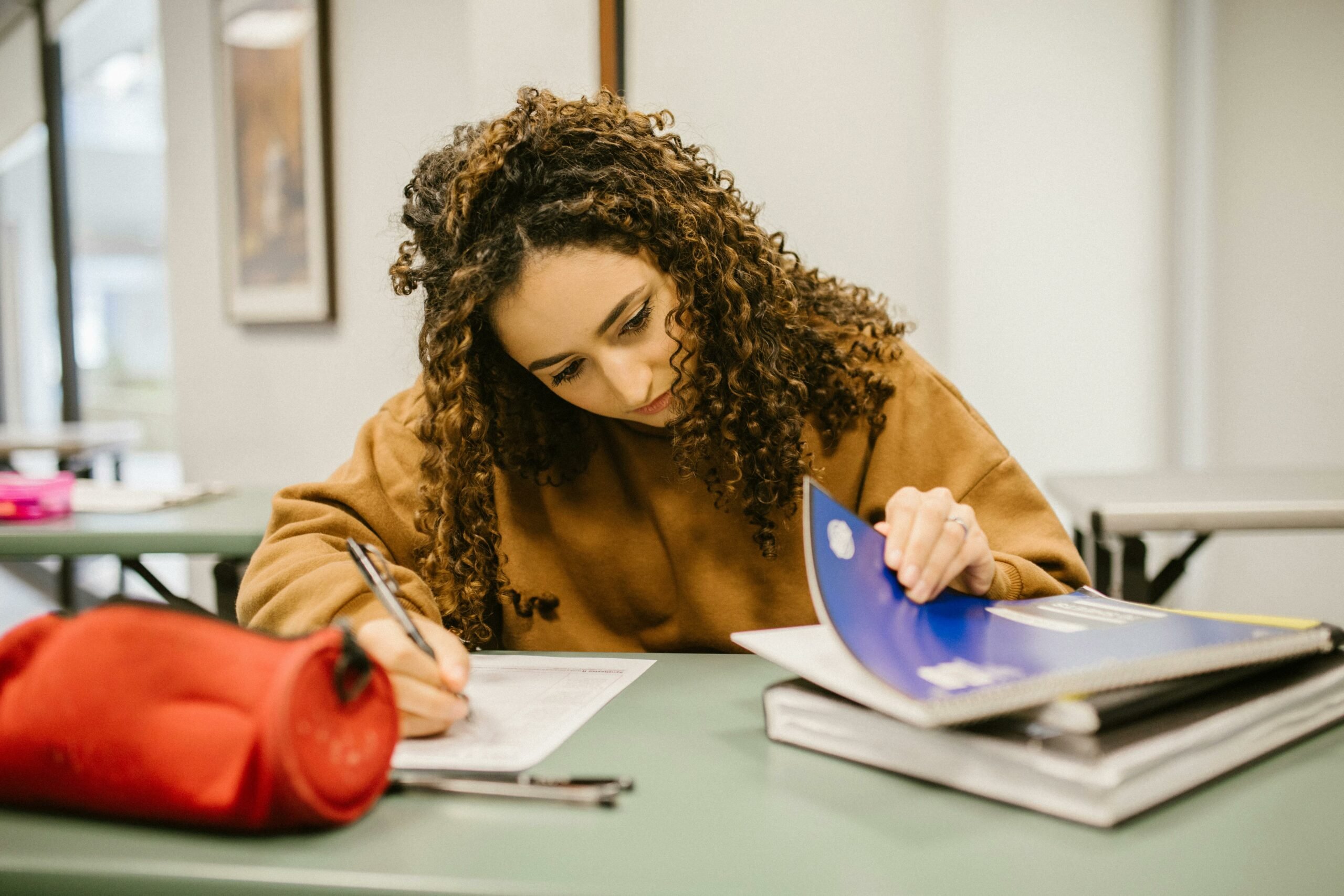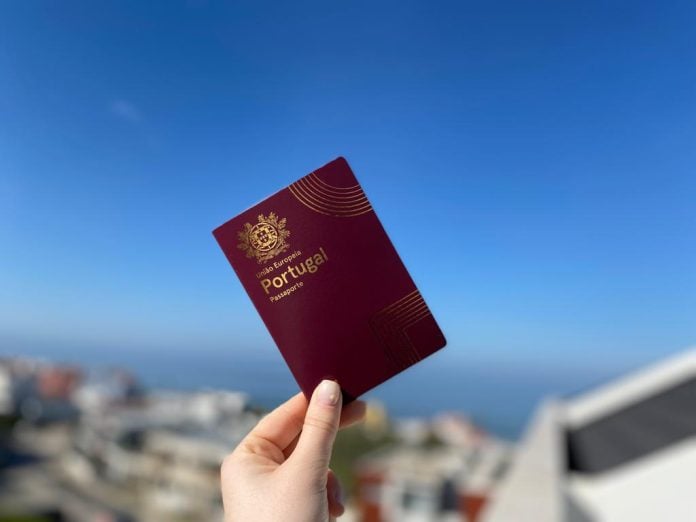When applying for Portuguese citizenship, one of the requirements is demonstrating proficiency in the Portuguese language. This is typically done by taking an official language test. Here’s what you need to know about the test, how to sign up, and what to expect.
The CIPLE – A2 Language Test for Portuguese Citizenship
The official Portuguese language test for citizenship purposes is called CIPLE (Certificado Inicial de Português Língua Estrangeira), which is part of the broader CAPLE (Centro de Avaliação de Português Língua Estrangeira) system.
Test Levels
The CAPLE system offers tests at different levels, but for citizenship purposes, you generally need to pass the A2 level. Here are all the available levels, from most basic to most advanced:
- ACESSO (A1) – Certificate of Access to Portuguese
- Most basic level of Portuguese proficiency
- Demonstrates understanding and use of familiar everyday expressions and very basic phrases
- Below the level typically required for citizenship
- CIPLE (A2) – Initial Certificate of Portuguese as a Foreign Language
- This is the minimum level required for citizenship application
- Demonstrates basic communication skills in everyday situations
- DEPLE (B1) – Diploma of Portuguese as a Foreign Language
- Intermediate level
- Not typically required for citizenship, but demonstrates higher proficiency
- DIPLE (B2) – Intermediate Diploma of Portuguese as a Foreign Language
- Upper-intermediate level
- Exceeds citizenship requirements
- DAPLE (C1) – Advanced Diploma of Portuguese as a Foreign Language
- Advanced level
- Far exceeds citizenship requirements
- DUPLE (C2) – University Diploma of Portuguese as a Foreign Language
- Near-native proficiency
- Far exceeds citizenship requirements
The exams CIPLE-e (level A2), DEPLE-e (level B1), and DIPLE-e (level B2) are school versions for young people aged between 12 and 15 years. There is also an exam (TEJO) for even younger people aged between 8 and 11 years old that assesses levels A1, A2, and B1.

Test Sections and Passing Requirements
The CIPLE (A2) test is divided into three main sections. Here’s a breakdown of each section and the requirements for passing:
1. Reading Comprehension and Written Expression
- Duration: 1 hour and 30 minutes
- Reading Comprehension: Multiple choice questions based on short texts
- Format: 20 questions total; The first 10 consist of short passages, including answering machine messages. The remaining questions ask test takers to answer questions related to two longer texts.
- Skills tested: Understanding main ideas in simple texts, identifying specific information
- Written Expression: Two writing tasks (e.g., filling out a form, writing a short message or email).
- Format: The first writing task should be between 25 and 35 words, and the second between 60 and 80 words. Make sure to leave enough time to count each word and please stay within the word count.
- Skills tested: Ability to write short, simple texts on familiar topics
2. Listening Comprehension
- Duration: 30 minutes
- Format: Multiple choice questions based on audio recordings.
- Note: This will be the hardest section by far, no matter how confident you think you are at listening!
- The questions becoming progressively more difficult.
- There is a lot of background noise during the audio recordings
- You get 30 seconds to read through three different answers in the multiple choice. Then, the audio is played twice for each question.
- The final task involves matching 10 sentences to the audio.
- Skills tested: Understanding main points in clear, slow speech on familiar topics
At the end of the listening section, you will be given a slip of paper with the scheduled time for the oral expression part of the test. This could be anywhere from 1-2 hours later.
3. Oral Expression
- Duration: 10-15 minutes
- Format: Short interview and role-play with another test taker
- Try to find your assigned speaking partner (the person with the same time slot and same room) before the oral test and practice together during the break. This should boost your confidence and give you an idea of your strengths and weaknesses ahead of time.
- The oral expression starts with introductory questions and then you will be asked to describe a picture for two minutes. Try to speak for the full two minutes.
- In the second part of oral expression, you will be asked to have a conversation with your speaking partner about an assigned topic. You will each need to speak for about two minutes.
- Skills tested: Ability to participate in simple conversations on familiar topics
What score do you need to pass the CIPLE test?
To pass the overall CIPLE test, you need to:
- Obtain an overall average score of at least 55% across all sections
- “Muito Bom” (Excellent Rating) is awarded for scores between 85% and 100%.
- “Bom” (Good Rating) is given for scores between 70% and 84%.
- “Suficiente” (Sufficient Rating) is awarded for scores between 55% and 69%. Candidates who achieve this rating or higher are considered to have passed the exam.

What I Can Do to Prepare for the CIPLE (A2) Test?
1. Reading Comprehension:
- Practice reading short texts like advertisements, simple news articles, and personal messages
- Focus on understanding main ideas and specific details
2. Written Expression:
- Practice writing short messages, emails, and filling out forms
- Pay attention to basic grammar rules and common everyday vocabulary
3. Listening Comprehension:
- Listen to Portuguese radio, podcasts, or watch TV shows with subtitles
- Focus on understanding the main points of clear, slow speech
4. Oral Expression:
- Practice speaking about familiar topics like family, hobbies, and daily routines
Try to engage in simple conversations with native Portuguese speakers.
– Take practice tests available on the CAPLE website
– Consider enrolling in a Portuguese language course
– Use language learning apps and resources to improve your skills.
– Watch European Portuguese films or shows on Netflix. You can also listen to music or podcasts.
– Practice speaking Portuguese in everyday situations. If Portuguese people speak to you in English, continue speaking to them in Portuguese. Hopefully, they will switch back to Portuguese.
How to Sign Up for the CIPLE (A2)
- Visit the official CAPLE website. This is the link to the CIPLE (A2) test.
- Choose your preferred test center
- Check the available test dates
- Register for the exam and pay the fee
- Prepare the necessary documents (usually identification and proof of payment)
When Can You Take the Portuguese Language Test?
All levels of the Portuguese Language Test take place both nationally and internationally over three consecutive days in the middle of May, July, and November. Registration for the test ends roughly three weeks before the test date. Grades are released two months after the test, diplomas are released one month after the results, and reevaluation is possible one week after the diplomas are delivered. Be sure to schedule your test well in advance, as test spots are limited, especially in Portugal.
Portugal also administer tests that take place only in Portugal. This will be denoted as CIPLE-P or DEPLE-P, for example. The national test dates usually occur in early February, early March, the third week of April, June, September, and October. Grades are released 6-7 weeks after the test, diplomas are released one month after the results are released, and reevaluation is possible one week after the diplomas are delivered.

How Can I Pay for the Portuguese Language Test?
It currently costs €79 to register for the CIPLE (A2) exam. Before starting your registration, please check that you credit card is up to date and uses the 3D SECURE safety system. If you live in Portugal, you can also pay with an ATM reference or MBWay.
If you do not finish your payment within 24 hours, you need to wait 48 hours until you can try a new registration.
Where Should I Take the Portuguese Language Test?
The official Portuguese test, specifically the CIPLE (A2) is offered in the following countries: South Africa, Germany, Angola, Argentina, Australia, Bulgaria, Cape Verde, Canada, Chile, China, South Korea, Spain, USA, France, Greece, Hungary, India, Ireland, Italy, Japan, Luxembourg, Morocco, Mexico, Mozambique, Panama, Paraguay, Poland, Portugal, the United Kingdom, Russia, Switzerland, East Timor, Turkey, Uruguay, Venezuela
We have highlighted the countries closest to Portugal as possible alternative locations for you to take the test if you are living in Portugal but cannot find an open spot within the country. Spots in Portugal fill up very quickly once spots open in January. If you want to take the test in Portugal, we strongly advise you to register for your test as soon as test slots open up as early as January or February at the latest. If you cannot find a spot open in Portugal, we encourage you to try Spain as a second option. Italy also seems to be a spot that has a large number of spots available at their test centers. Double-check with test centers located outside of Portugal regarding how you will receive your grades.
What Do You Need to Bring with You on Test Day?
Test takers need to bring the following on test day:
- Either a passport, national identification document, or residence permit card
- Pencil (for the reading comprehension section)
- A black or blue pen (for the writing section)
- Eraser
- A printed, signed data permission sheet
- Bottled water or snacks
- Just a note here: you will likely be put into a room with 12-20 other people for the test
Tips for Preparation
– Take practice tests available on the CAPLE website
– Consider enrolling in a Portuguese language course
– Use language learning apps and resources to improve your skills
– Practice speaking Portuguese in everyday situations

Final Thoughts
Once you pass your CIPLE, it is valid indefinitely. So, plan ahead and leave time to take the test a second time if you fail it the first time. We suggest getting it out of the way as soon as possible after you move to Portugal.
Remember, passing the CIPLE A2 level test demonstrates that you can understand and use familiar everyday expressions and basic phrases aimed at the satisfaction of needs of a concrete type. While this is sufficient for citizenship purposes, continuing to improve your Portuguese language skills will greatly enhance your integration into Portuguese society. Boa sorte (Good luck) with your Portuguese studies!


